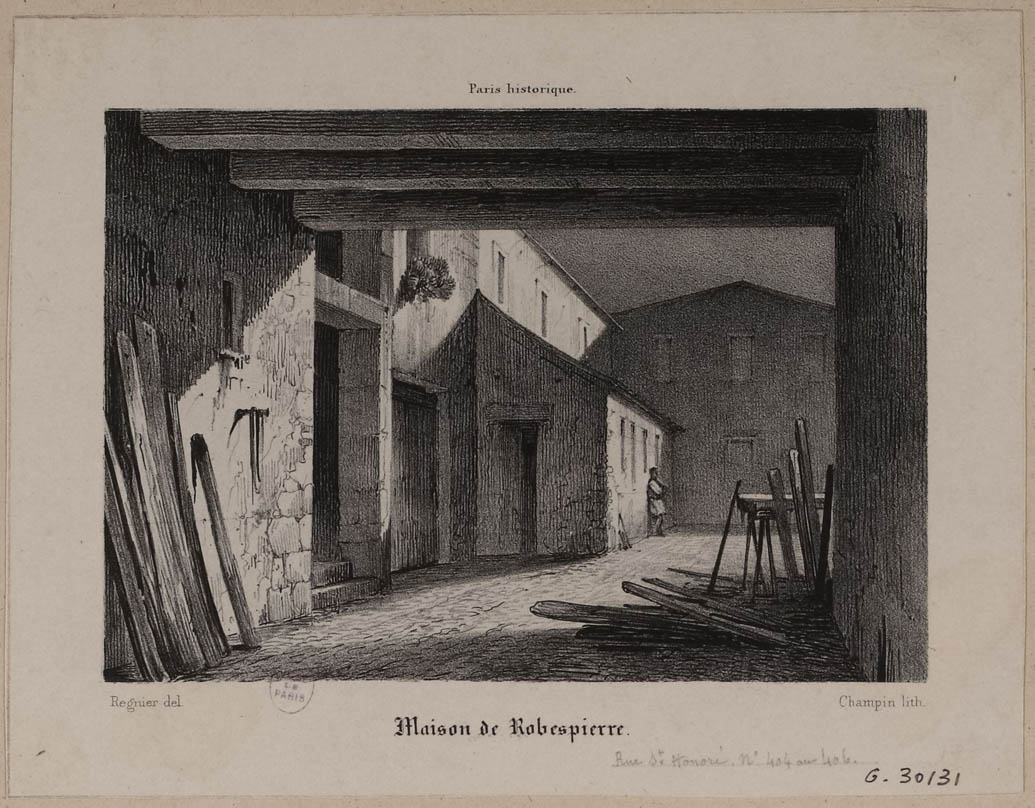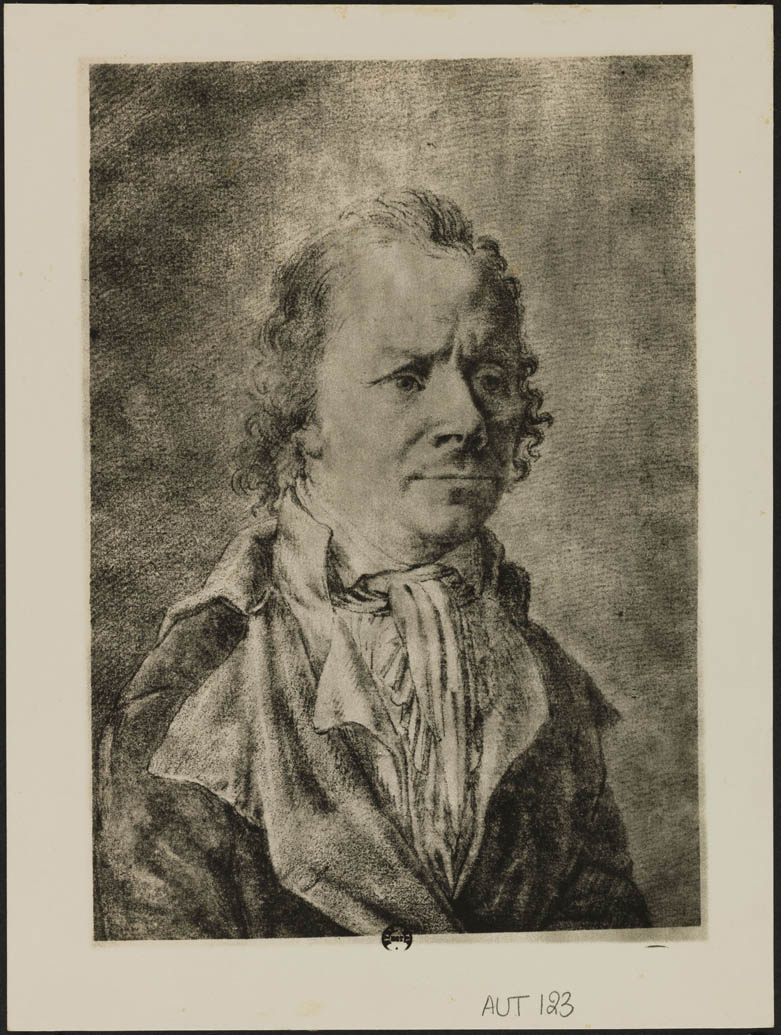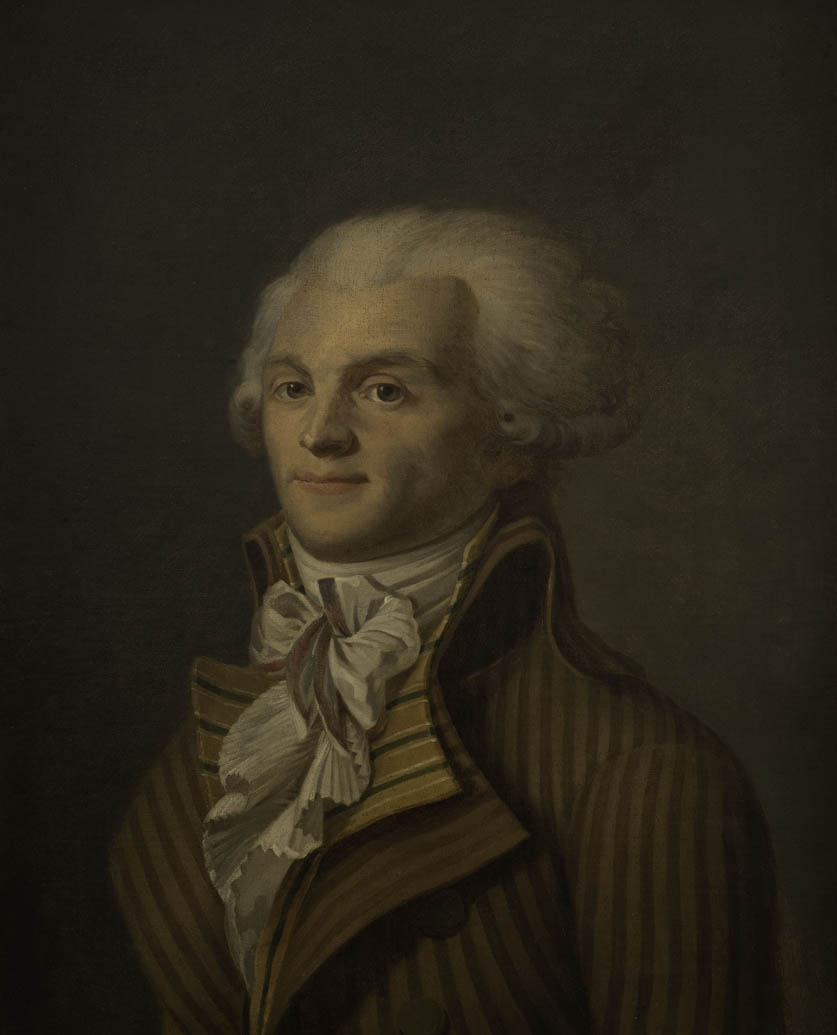Robespierre's Last Residence
Imagine, instead of a store, a carriage door opening onto an inner courtyard. From 1791 to his death in 1794, Maximilien Robespierre lived here, in the home of the carpenter Maurice Duplay (see below). In proximity to the Assembly, Robespierre found refuge here after the massacre on the Champ-de-Mars on July 17, 1791. He then stayed, protected by the builder’s family. His life was austere: Robespierre had a very modest room on the first floor, overlooking the courtyard.
Location
Itinerary398 rue Saint-Honoré
Suggestion
The Louvre and the Tuileries neighborhood
How Can a Person Earn their Stripes by Shooting Innocent People?
To find out more…
Maurice Duplay, a Parisian revolutionary
When the Revolution started, he was almost 40 years old. At the head of a prosperous carpentry workshop on the rue Saint-Honoré, Maurice Duplay was a well-established man. Very quickly, he became a member of the Jacobin club, located a stone’s throw away from his home. He was respected: his voice counted in the artisan world. His daughter even married a deputy. With the Revolution, the Duplay family ascended the societal ladder. In July 1791, he offered to house Robespierre in his home: the Incorruptible was threatened. Arrested three years later due to this gesture, Duplay was finally acquitted. However, he did not renounce his commitments: in 1796, he became close with the Equals, a society that planned on overthrowing power in order to establish a truly democratic and social republic.
July 26, 1794: Robespierre’s last speech
On July 26, 1794, Maximilien Robespierre gave his last speech to the National Convention. He knew he was beyond all hope. Accused of being a dictator, he responded: “This word dictatorship has a magical effect; it debases freedom; it degrades the government, it destroys the Republic; it damages all revolutionary institutions, since it is presented as the work of a single man; it makes national justice unbearable, since it is presented as instituted by the ambition of a single man (…) They call me a tyrant… If I were, they would grovel at my feet, I would stuff them with gold, I would assure them that they have the right to commit any crime, and they would be grateful. If I were, the kings that we vanquished, far from denouncing me (what a tender interest they take in our freedom!) would give me their shameful support.”







